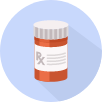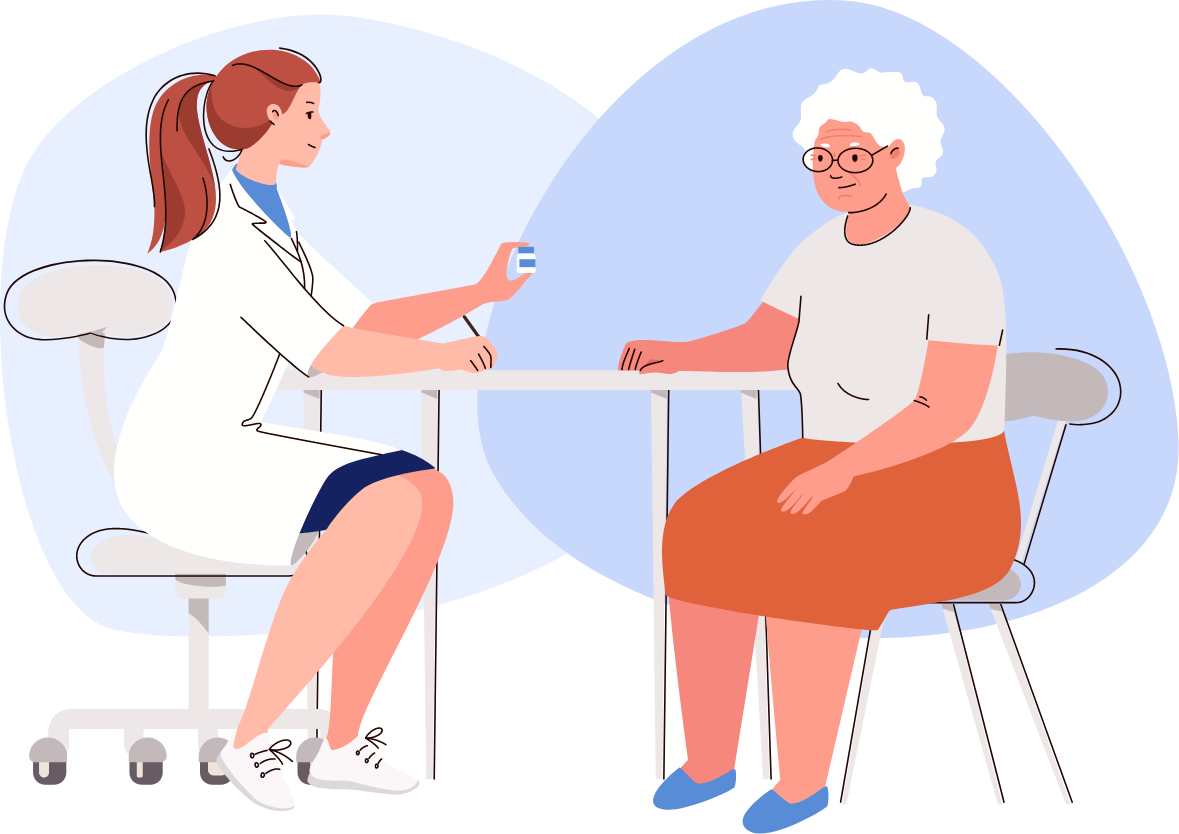
What is Cardiovascular Disease?
Cardiovascular disease encompasses various heart and blood vessel conditions, including coronary artery disease, heart failure, heart attack, and stroke. Ennoble Care understands the seriousness of these diseases, which can arise from high blood pressure, high cholesterol, smoking, diabetes, obesity, and a sedentary lifestyle. We’re here to support prevention and management through education, personalized care, and guidance. By adopting a healthy lifestyle, managing risk factors, and seeking our timely medical care, we empower individuals to reduce the likelihood of developing cardiovascular disease and enhance their overall heart health.
In-Home Treatments for Cardiovascular Disease
Our in-home care for cardiovascular disease offers personalized and empowering treatments. From medication management to lifestyle modifications, we tailor our comprehensive approach to your unique needs. Enhance heart health in the comfort of your home with our dedicated team’s support and guidance on your journey to a healthier heart.

Our team provides expert medication management, ensuring proper administration and monitoring of cardiovascular disease medications to optimize treatment effectiveness and minimize potential risks.

Our healthcare professionals regularly monitor vital signs, blood pressure, and other key indicators to assess cardiovascular health. We provide education on self-monitoring techniques and empower individuals with knowledge for better self-care.

We offer personalized guidance and support in implementing lifestyle modifications for cardiovascular disease management, including dietary changes, physical activity recommendations, smoking cessation support, and stress reduction techniques.

Our in-home healthcare team coordinates care with primary care physicians, cardiologists, and other specialists to ensure comprehensive treatment for cardiovascular disease. We facilitate communication, and appointment scheduling, and ensure seamless collaboration in your healthcare journey.
Cardiovascular Disease FAQs
Explore our resources to find answers to common questions about risk factors, symptoms, treatment options, and preventive measures. Gain a deeper understanding of cardiovascular health and make informed decisions for your well-being.
The most common type of cardiovascular disease is coronary artery disease (CAD). It occurs when the blood vessels that supply the heart with oxygen and nutrients become narrowed or blocked due to a buildup of plaque. CAD can lead to chest pain, heart attacks, and other serious complications.
Major risk factors for cardiovascular disease include high blood pressure, high cholesterol levels, smoking, obesity, diabetes, sedentary lifestyle, family history, age, and certain medical conditions. Identifying and managing these risk factors through lifestyle changes and medical interventions is crucial in reducing the chances of developing cardiovascular disease.
The common causes of cardiovascular disease include lifestyle factors such as unhealthy diet, lack of physical activity, smoking, and excessive alcohol consumption. Additionally, underlying medical conditions like high blood pressure, high cholesterol, and diabetes can contribute to the development of cardiovascular disease. Genetics and family history may also play a role.
Signs and symptoms of cardiovascular disease may include chest pain or discomfort, shortness of breath, fatigue, palpitations, dizziness, nausea, and swollen ankles or legs. However, some individuals may not experience any noticeable symptoms until a significant event like a heart attack or stroke occurs. If you have concerns, please seek medical attention.
Cardiovascular disease can be diagnosed through various methods, including medical history review, physical examination, blood tests, electrocardiogram (ECG), stress tests, echocardiography, cardiac catheterization, and imaging tests like CT scans or MRIs. These diagnostic tools help healthcare professionals assess heart health, identify abnormalities, and determine appropriate treatment strategies.
Yes, to a large extent, cardiovascular disease can be prevented. By adopting a healthy lifestyle that includes regular physical activity, a balanced diet, maintaining a healthy weight, managing stress, avoiding tobacco use, and controlling other risk factors like high blood pressure and cholesterol, the risk of cardiovascular disease can be significantly reduced.
Lifestyle modifications recommended for managing cardiovascular disease include regular exercise, following a heart-healthy diet, maintaining a healthy weight, quitting smoking, managing stress, limiting alcohol consumption, and adhering to prescribed medications. These modifications can improve heart health, reduce symptoms, and lower the risk of future cardiovascular events.
It is essential to seek care for cardiovascular disease if you experience symptoms like chest pain, shortness of breath, or palpitations. Additionally, if you have known risk factors such as high blood pressure, high cholesterol, or a family history of heart disease, it’s important to consult a healthcare professional for early detection, preventive measures, and appropriate management.

Get Started with Cardiovascular Treatment at Home
Embark on your cardiovascular treatment journey from the comfort of your own home. At Ennoble Care, our team provides personalized care, monitoring, and support for effective cardiovascular treatment. Experience the convenience and comfort of in-home care, tailored to your needs. Take the first step towards better heart health and contact us today to start your cardiovascular treatment at home.